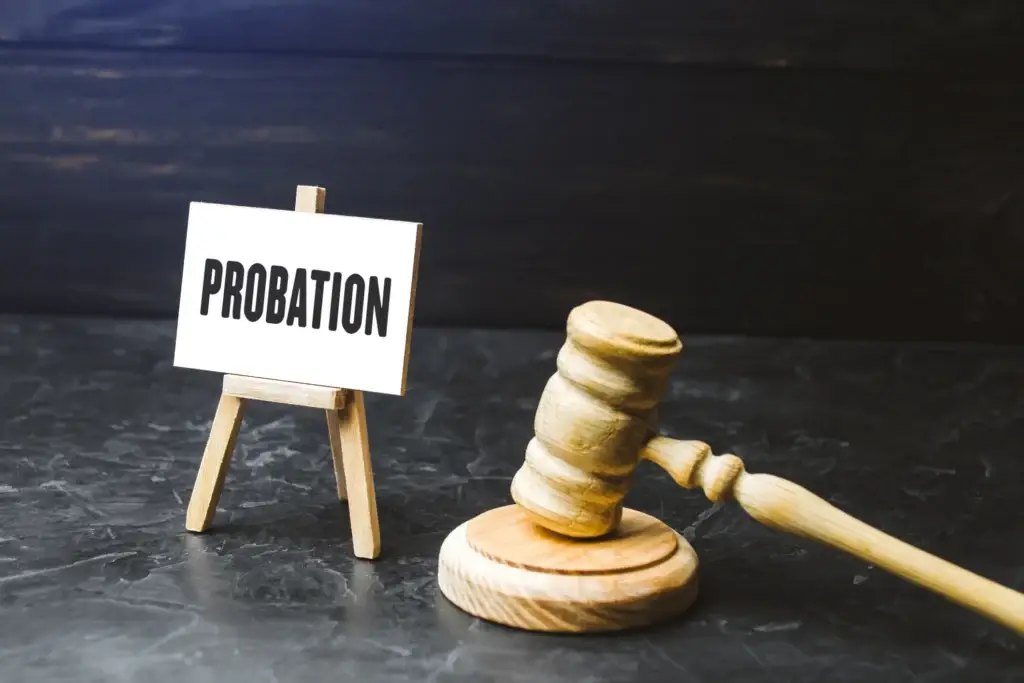April 21, 2025
The Powerful Benefits of Taking an Alcohol Awareness Class Voluntarily: A Comprehensive Guide to Proactive Education

When the topic of alcohol awareness classes comes up, the immediate association for many people is with legal requirements – courses mandated by courts after a DUI, DWI, underage drinking citation, or other alcohol-related offenses. While fulfilling these legal obligations is a primary reason for enrollment for many, there exists a significant and often overlooked opportunity: voluntarily attending an alcohol awareness class. Choosing to participate proactively – without any legal pressure or external mandate – can unlock a wealth of meaningful benefits that positively impact your personal health, relationships, professional life, and overall well-being.
Taking a voluntary alcohol awareness class is a powerful act of self-awareness and personal responsibility. It signifies a genuine interest in understanding your relationship with alcohol, learning healthier behaviors, and taking proactive steps to avoid potential future problems.
In this comprehensive guide, we will thoroughly explore the numerous advantages of voluntarily enrolling in an alcohol awareness class. We’ll delve into the significant positive outcomes, including enhanced self-awareness, improved health outcomes, better interpersonal relationships, career and professional advantages, potential legal and financial benefits, and the profound sense of personal empowerment that comes from taking control of your education and choices.
Understanding Voluntary Alcohol Awareness Classes: Taking Ownership of Your Education
Before diving into the specific benefits, let’s clarify what distinguishes “voluntary” participation from mandated attendance.
- Proactive Choice: Voluntary participation occurs when an individual makes a personal decision to enroll in an alcohol awareness class because they want to learn more, assess their own habits, or gain skills, rather than being compelled by a court order, probation requirement, or DMV mandate.
- Intrinsic Motivation: This form of participation is driven by internal motivation – a genuine interest in personal growth, health, or preventing potential future issues – as opposed to extrinsic motivation (avoiding penalties or fulfilling a legal obligation).
- Same Core Curriculum, Different Context: Voluntary classes from reputable providers typically cover the same essential, state-standard curriculum as court-mandated courses. The difference lies in the participant’s motivation and the absence of legal oversight pressures, which can often lead to a more open mindset and greater personal insight during the learning process.
Voluntarily choosing to take a class demonstrates a level of maturity and self-awareness that is inherently beneficial. These courses, like those mandated by courts, cover critical topics found in guides such as Court-Approved Online Alcohol Awareness Classes: The Definitive Guide, ensuring you receive high-quality education.
Key Benefits of Choosing Voluntary Alcohol Awareness Classes
The advantages of voluntarily enrolling in an alcohol awareness class are diverse and can create a ripple effect of positive change in various areas of your life:
- Enhanced Self-Awareness and Personal Growth: Voluntarily taking a class provides a structured opportunity for introspection about your relationship with alcohol. Many people have established drinking patterns without fully understanding the “why” behind them or the subtle ways alcohol impacts their daily lives. The curriculum helps you assess your own habits, recognize potential risks you might be taking, understand triggers for drinking, and identify any early signs of problematic use. This increased self-awareness is a fundamental step towards making conscious, healthier choices and fostering significant personal growth. The Science Behind Alcohol Awareness Courses can provide more context on the scientific basis of the information presented
- Better Physical and Mental Health Outcomes: Understanding alcohol’s comprehensive impact on your physical and mental well-being can be a powerful catalyst for positive change. Alcohol awareness education provides detailed, evidence-based information on:
- The short-term and long-term physical health risks associated with alcohol consumption, including its effects on the liver, heart, brain, and increased risk of certain cancers and other diseases.
- The complex relationship between alcohol and mental health, including how excessive drinking can exacerbate symptoms of anxiety and depression, contribute to sleep disorders, and increase the risk of developing substance dependency issues. Armed with this knowledge, voluntary participants are often motivated to reduce their alcohol consumption, practice moderation, or choose abstinence, leading to tangible improvements in energy levels, sleep quality, mood stability, and overall physical health.
- Improved Interpersonal Relationships: Alcohol use, even at seemingly moderate levels or primarily in social settings, can sometimes strain relationships. Impaired judgment, altered mood, or difficulty with communication while under the influence can lead to misunderstandings, arguments, or emotional distance. Voluntary classes often provide valuable insights into:
- How alcohol affects communication patterns and emotional regulation.
- Strategies for handling social situations and peer pressure without relying heavily on alcohol.
- Techniques for setting healthy boundaries around alcohol use within relationships. By adjusting your relationship with alcohol based on the knowledge gained, you can foster more present, authentic, and healthy interactions with family, friends, and partners, potentially repairing or enhancing strained connections.
- Career and Professional Advantages: Taking a proactive step like completing an alcohol awareness class can reflect positively on your professional life in several ways:
- Demonstrates Responsibility and Initiative: It showcases to current or prospective employers that you are a responsible individual who takes initiative for self-improvement and is committed to making healthy choices – qualities highly valued in the workplace.
- Meets Potential Workplace Requirements Proactively: Some professions or companies may have policies encouraging or requiring alcohol education. Voluntarily completing a course can proactively fulfill these, potentially opening doors for certain positions or demonstrating compliance. Alcohol Awareness Classes for Workplace Requirements discusses mandatory workplace classes.
- Enhances Productivity and Performance: Reducing problematic alcohol use can lead to improved focus, increased energy, better memory, and reduced absenteeism, all of which contribute to enhanced productivity and overall job performance.
- Potential Legal Benefits and Risk Prevention: While voluntary participation isn’t tied to a current offense, it serves as powerful proactive risk management:
- Preemptive Education: By thoroughly understanding the legal consequences of alcohol misuse, including DUI/DWI laws, public intoxication statutes, and underage drinking laws, you significantly reduce your chances of unknowingly engaging in behavior that could lead to future legal trouble.
- Positive Legal Standing (If Future Issues Arise): Should you ever face legal challenges involving alcohol in the future, having voluntarily completed a recognized alcohol education course prior to the incident can potentially be viewed favorably by courts. It demonstrates a history of proactive self-education, insight into the risks, and a willingness to address the topic, which could potentially influence plea negotiations, sentencing, or court-mandated requirements compared to someone with no prior education. This acts as a form of proactive risk mitigation.
- Financial Savings and Potential Insurance Benefits: Voluntarily addressing your relationship with alcohol can lead to tangible financial benefits:
- Direct Savings: Reducing or eliminating alcohol consumption directly saves the money that would have been spent on purchasing alcoholic beverages.
- Insurance Discounts: Many car insurance providers recognize the value of proactive alcohol education. They may offer discounts on your premiums upon receiving proof of voluntary completion of an accredited alcohol awareness program, viewing it as a demonstration of responsible behavior that reduces risk. Alcohol Awareness Classes and Insurance Discounts explores these potential savings further.
- Avoiding Future Costs: Most significantly, taking proactive steps through education can help you avoid the enormous financial costs associated with future alcohol-related legal issues, including fines, legal fees, court costs, increased insurance rates, and potential loss of income. Costs of Court-Mandated Alcohol Awareness Classes details these expenses.
- Setting a Positive Example: For parents, mentors, or individuals in positions of influence, taking a voluntary alcohol awareness class demonstrates a commitment to responsible choices and continuous learning, setting a positive example for others, particularly young people. Guide to Alcohol Awareness Classes for Underage Drinking Offenses discusses the importance of understanding alcohol risks for youth.
- Improved General Decision-Making: The skills learned in an alcohol awareness class about evaluating risks, understanding consequences, and making conscious choices extend beyond alcohol-specific situations and can contribute to improved decision-making in other areas of your life.
Voluntary participation isn't tied to a current offense, it serves as powerful proactive risk management
Who Should Consider Taking an Alcohol Awareness Class Voluntarily?
Voluntary participation in an alcohol awareness class can be beneficial for a wide range of individuals, including:
- Social Drinkers: Anyone who drinks alcohol socially and wants to ensure their habits remain healthy, understand the concept of responsible drinking, and learn strategies for safe consumption.
- Individuals Concerned About Their Drinking Habits: Anyone who is questioning their relationship with alcohol, suspects they might be drinking too much, or is worried about developing problematic patterns.
- Individuals Facing Stress or Mental Health Challenges: Those who are concerned about using alcohol as a coping mechanism for stress, anxiety, depression, or other emotional difficulties.
- Parents and Guardians: To gain knowledge about the risks of alcohol, particularly underage drinking, and to be better equipped to discuss the topic openly and effectively with their children.
- Young Adults: To understand the specific risks alcohol poses to their developing brains and bodies, learn strategies for handling peer pressure, and make informed choices as they navigate social situations.
- Individuals with a Family History of Alcoholism or Addiction: To gain proactive knowledge about the risks they may face and learn preventative strategies.
- Anyone Seeking Personal Development: Individuals interested in self-improvement, health and wellness, and understanding how lifestyle choices impact overall well-being.
- Individuals in Professions Sensitive to Alcohol Use: Those working in fields such as healthcare, education, transportation, or law enforcement where responsible behavior regarding alcohol is particularly crucial.
Maximizing the Benefits From Your Voluntary Alcohol Awareness Class
To gain the most value from your voluntary alcohol awareness class and truly unlock its benefits, approach it with intention and engagement:
- Set Personal Goals: Before starting, identify what you hope to gain from the experience. Do you want to reduce your drinking? Learn healthier coping mechanisms? Understand the health risks better? Setting clear goals will help you focus on the most relevant parts of the curriculum.
- Actively Participate: Engage fully with all course content. Take notes on key information, complete any reflection exercises or quizzes thoughtfully, and consider how the material applies to your own life and habits (Tips for Successfully Completing Your Alcohol Awareness Class). Treat assessments (Do Online Alcohol Awareness Classes Include Tests?) as opportunities to solidify your learning.
- Apply Lessons Immediately: Don’t let the learning stay in the classroom (or online module). Start incorporating the strategies and coping mechanisms you learn into your daily routines right away. Practice refusal skills, plan alcohol-free days, or identify healthy alternatives to drinking when stressed.
- Seek Support if Needed: If the course material highlights areas where you might need more in-depth help (e.g., signs of dependence, significant stress), utilize any resources provided by the course provider or seek external support from counseling or support groups. Voluntary participants have access to the same support resources offered by providers as mandated individuals.
- Track Your Progress: After implementing changes based on the course, track how you feel. Note improvements in your mood, energy levels, sleep, or reduction in drinking frequency. This can reinforce your motivation.
- Choose the Right Format and Provider: Select an online or in-person format based on your learning style and preference to ensure maximum engagement (Online vs. In-Person Alcohol Awareness Classes: Which is Better?). Even for voluntary classes, choose a reputable, accredited provider to ensure the information is accurate and the learning experience is valuable (How to Verify if an Online Alcohol Awareness Class is Legitimate). Consider the course length that feels appropriate for the depth of knowledge you seek (8 Hour vs 12 Hour Alcohol Awareness Classes).
Yes. Reputable providers like Courseable prioritize participant confidentiality and privacy for all students, whether mandated or voluntary. Since you are taking the class without a court order, your information is not reported to courts or the DMV unless you personally choose to share your certificate with them.
Yes. Upon successfully completing the course, voluntary participants receive the same official certificate of completion as mandated individuals. This certificate serves as verifiable documentation of your proactive education and holds credibility as proof of completing a state-standard alcohol awareness program. Alcohol Awareness Class Certification: How Long Is It Valid? discusses certificate validity in different contexts.
Absolutely. While it doesn’t prevent you from being charged if an incident occurs, demonstrating to the court that you proactively completed an alcohol awareness class before any legal requirement can significantly influence outcomes. It shows insight, a commitment to understanding risks, and a willingness to take responsibility for self-education, which can be viewed very favorably by judges, prosecutors, and probation officers and may influence plea negotiations or sentencing.
Yes. Legitimate providers offering voluntary alcohol awareness classes utilize the same core curriculum that is approved by state authorities for court-ordered programs. This ensures that voluntary participants receive the same high-quality, evidence-based education. Court-Approved Online Alcohol Awareness Classes: The Definitive Guide outlines the typical curriculum.
Yes. Like court-mandated classes, voluntary classes from accredited providers have associated fees to cover the costs of curriculum development, technology, administration, and maintaining state approval. However, viewing this as an investment in your health, future, and avoiding potentially much larger costs down the line puts the cost into perspective. Costs of Court-Mandated Alcohol Awareness Classes discusses typical expenses.
Yes. If the voluntary class covers the same state-standard curriculum as court-ordered classes, it will typically include quizzes and a final test. These assessments are part of the educational design to ensure understanding and meet curriculum standards, regardless of whether participation is voluntary or mandated. Do Online Alcohol Awareness Classes Include Tests? provides more details on testing.
No. Voluntarily enrolling in and completing an alcohol awareness class does not appear on your criminal record or driving record. The certificate is for your personal use and to provide as proof of education if you choose to share it (e.g., with an employer or insurance company).
Voluntary classes are available in the same standardized durations as mandated classes (e.g., 4-hour, 8-hour, 12-hour). You can choose the length that best suits your interest level and goals.
You can find a voluntary class by looking for providers that offer state-approved alcohol awareness courses for court-ordered requirements in your state. Any provider that offers a court-approved class can be taken voluntarily. Look for online or in-person options that fit your preference. Finding a State-Approved Alcohol Awareness Course Online is a great resource for this.
Yes, some employers may require employees to take an alcohol awareness class as part of company policy, especially after a workplace incident or as a condition of employment in certain roles. While mandatory according to the employer, this is considered “voluntary” from a court perspective as it’s not a legal mandate stemming from a criminal offense. Alcohol Awareness Classes for Workplace Requirements covers this scenario.
Final Thoughts: Empower Yourself Through Voluntary Alcohol Awareness
Voluntarily attending an alcohol awareness class is an empowering decision that reflects responsibility, self-awareness, and a genuine desire for personal growth and a healthier future. It’s a proactive step that can lead to significant improvements in your health, relationships, and professional life, provide potential legal and financial advantages, and equip you with valuable knowledge to make safer choices. Voluntary education isn’t just an alternative to mandated classes; it’s a powerful tool for preventative care and personal development.
Ready to take proactive control of your relationship with alcohol and invest in your well-being? Enroll today in Courseable’s Online Alcohol Awareness Classes Courseable’s Online Alcohol Awareness Classes—a proven, trusted, and state-approved resource dedicated to your empowerment, education, and growth, available at your convenience.
The skills learned in an alcohol awareness class about evaluating risks, understanding consequences, and making conscious choices extend beyond alcohol-specific situations and can contribute to improved decision-making in other areas of your life.
Disclaimer: Seek Professional Guidance
This article is provided as general educational information regarding the potential benefits of voluntarily attending alcohol awareness classes. It is not intended as, and should not be considered, personalized medical advice, legal advice, or professional counseling. If you have concerns about alcohol dependence, mental health, or specific legal issues, you should consult with qualified healthcare professionals, addiction specialists, or legal counsel for personalized assessment, treatment, and guidance.
Related Posts

Alcohol Awareness Classes and Probation: Understanding Your Requirements and Ensuring Compliance

How to Confidently Talk to Your Employer About a Court-Ordered Alcohol Awareness Class
Start Your Court Ordered Alcohol Class



